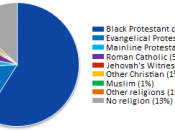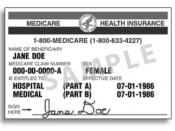Mama Might Be Better off Dead: Racial Disparities in Urban America and the Failure of the Health Care System
Health care within the United States is has been changing and evolving ever since there was a strong demand for medical services. However, in the 1960s the federal government unrolled a revolutionary program that intended to provide health insurance to the remainder of the population that was unable to afford it. This program included the widely known Medicare and Medicaid, which attempt to provide care to the elderly and the extremely poor, respectively. This program could have been much more successful than we see it today, had it not been for the shift in perspective on health care in the 1950s. The Hill-Burton Act of 1946 provided increased federal funding for the improvement and construction of hospitals across the United States. A consequence (perhaps intended) of this Act was that it quickly showed the power that the federal government had in controlling the portions of the population had easy access to health care.
As a result, hospitals began to shift toward a for-profit basis to make money and grow larger, with less and less concern for the health of the general population. Unfortunately, this did not help the effectiveness of Medicare and Medicaid, as many hospitals continued to turn away or provide poor care to low income and minority populations. These are the issues that many families faced throughout the second half of the 20th century and into today.
Summary
In Laurie Kaye Abraham's examination of health care delivery to the poor, titled Mama Might Be Better off Dead, Abraham chronicles the health-related struggles that one Chicago family must deal with every day as a result of the American health care system. The Banes are an African-American, low income,


